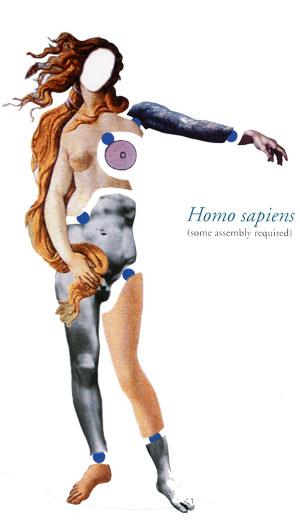The Humanities dual major at UNH explores the question, "What does it mean to be human?" Students examine this through diverse sources, from Greek tragedies to contemporary theories. This program complements your main area of interest while further developing your analytical writing and critical thinking skills. Enjoy regular coursework across liberal arts classes, along with small, intensive seminars and team-taught classes. Faculty across many disciplines guide students, who also benefit from study-abroad opportunities, including programs in Rome, Greece, and Budapest.
What is humanities?
The humanities ask, “What does it mean to be human?” As a student in the humanities degree program, you’ll explore that fundamental question of existence. For answers, you’ll look everywhere from Greek tragedies, postmodern novels and High Renaissance sculpture to pop art, baroque music and contemporary psychological and social theories. Humanities students are in the company of scientists, artists, musicians, historians, revolutionaries, philosophers and writers who, for thousands of years, have been engaged in the same quest. To guide students on this journey are faculty members across disciplines in the College of Liberal Arts, from theatre, English, Spanish, art, philosophy and more.
Why study humanities at UNH?
Designed as a dual major, the humanities program at UNH complements your main area of interest while helping you develop your analytical writing and critical thinking skills. You’ll obtain a solid liberal arts education through regular coursework, small, intensive seminars and team-taught classes, as well as an intensive year-long project during your senior year. You’ll also enjoy study-abroad opportunities that include a popular January-term course in Rome, and programs in Greece and Budapest.
Potential careers
- Communications director
- Content strategist
- Humanities professor
- Intelligence analyst
- Lawyer
- Marketing professional
- Nonprofit administrator
- Writer
Curriculum & Requirements
The dual major in humanities is structured in such a way that students can focus on a chosen primary major while taking advantage of the humanities program curriculum and its emphasis on analytical writing, critical thinking and well-rounded interdisciplinary cultural knowledge. Students combine our curriculum with another, disciplinary major that allows them to pursue a narrower field of study in some depth. The dual major in humanities offers students a set of tools and skills so they can understand and forge our 21st century world. Its curriculum provides structure, progression, and rigor. Citizens of the 21st century need to know how to analyze texts and navigate cultures. That is why the humanities are essential to the lives of educated people.
Degree Requirements
All Major, Option and Elective Requirements as indicated.
*Major GPA requirements as indicated.
Humanities Dual Major Requirements
- The humanities dual major consists of a minimum of 32 credits of academic work, with a minimum grade of C-.
- Students cannot declare the dual major until they have declared a primary major.
- Students must have a GPA of 2.75 to be accepted to the dual major program.
- The required minimum overall GPA in major coursework is 2.0.
| Code | Title | Credits |
|---|---|---|
| Core Requirements: Four Core Courses (16 Credits) | ||
| HUMA 500 | Critical Methods in the Humanities 1 | 4 |
| Select EITHER two of the following team-taught course topics | ||
Ancient Humanities: Cultures and Empires (HUMA 510 A, B, C, D) | ||
Medieval Humanities: Rise of Global Empires (HUMA 511 A, B, C) | ||
Modern Humanities: Colonies, Constitutions, and Capital (HUMA 512 A, B, C) | ||
Global Humanities (HUMA 513 A, B, C, D) | ||
Space, Place & the Environment (HUMA 514 A, B, C, D) | ||
| OR one team-taught course PLUS | ||
HUMA 401/401W | Introduction to the Humanities | |
| Discovery Program Capstone | ||
| Select from the following: | ||
HUMA 701W | Capstone Course (preferably during junior or senior year) | |
or | ||
HUMA 798 & HUMA 799 | Research Seminar and Research Seminar 3 | |
| Additional Requirements (16 Credits) | ||
| Select four area courses in COLA (500 level or above) from at least three of five areas of disciplinary focus 4 | ||
- 1
Students will be made acquainted with the methods and technology required for research in humanities.
- 2
This seminar provides an opportunity for in-depth reading, viewing, and/or listening to texts and artifacts. The emphasis is on the multiple perspectives and methodologies that can be brought to bear upon these works from several humanistic disciplines.
- 3
Each student participates in the research tutorial (for a total of 6 credits) throughout the senior year. The tutorial provides a context within which students may discuss and receive direction in the course of completing a major research paper, the senior thesis. At the end of the second semester, students present their research to the faculty and their fellow students.
- 4
Selected with the advice and approval of each student's major adviser or the program coordinator. These offerings should bear some relation to the student's particular interests and senior research paper, as seems appropriate in each individual case.
Candidates for a degree must satisfy all of the University Discovery Program requirements in addition to satisfying the requirements of each individual major program. Bachelor of arts candidates must also satisfy the foreign language proficiency requirement.
Program Learning Outcomes
- Demonstrate the ability to find and evaluate primary and secondary source material necessary for humanistic research.
- Demonstrate the ability to propose, conduct, and present interdisciplinary humanistic research in a written, oral, or other forms. Identify and interpret creative and cultural forms from a given historical period.
- Compare and contrast the meanings of major texts and other significant cultural productions.
Program Details

Welcome to the Humanities Program. Humanities students explore the fundamental questions of human existence. What does it mean to be a human being? For answers, humanities students look everywhere: from Greek tragedies, postmodern novels, and High Renaissance sculpture to pop art, baroque music, and contemporary psychological and social theories. Humanities students are in the company of scientists, artists, musicians, historians, revolutionaries, philosophers, and writers who, for thousands of years, have been engaged in the same quest.
To introduce students to their fellow explorers, the University has assembled an interdisciplinary faculty. You will find professors of art, literature, philosophy, and science teaching a course on the search for spiritual life, or instructors of history, political science, and theater offering a course on law and the meaning of justice.
The interdisciplinary faculty reflect an integrated curriculum in which students quickly learn that no human feat stands alone. You will have the opportunity to study how a work of art and literature, for example, was shaped by that which preceded it and how it influenced what followed. And in the process, you may develop a new way of thinking-not only about art and literature, but also about life and yourself. Students from any academic program may enroll in a humanities course. The program offers a major, a minor, and many courses that satisfy general education or elective requirements.
Guidelines
The Senior Capstone Experience in Humanities is an opportunity for Humanities majors to bring their interpretive abilities, their writing skills, and their understanding of cultural traditions to bear on a long-term, independent project in the form of a thesis that will serve as the culmination of their humanities studies at the University of New Hampshire. The Senior Thesis for Humanities majors exemplifies each student's accumulated knowledge and mastery of analysis. All seniors majoring in Humanities must write a thesis over the course of their final year of study.
It is vital that the student wishing to begin a thesis demonstrate sufficient preparation through coursework, have a good working knowledge of the topic proposed, and show evidence of strong research and writing skills. All Humanities majors are therefore required to have completed HUMA 500 (Critical Methods in the Humanities) before beginning the first semester of their thesis work. Ideally, Humanities majors take HUMA 500 in their sophomore year.
A student electing to write a thesis must show initiative by conducting preliminary research to develop an appropriate topic. The completed thesis should demonstrate the student's ability to interpret texts and support the interpretation with secondary critical sources. The student should draw on at least two humanities disciplines for the thesis, which means that at least two professors from those disciplines must approve the thesis project and be willing to serve as advisors to the thesis (in addition to the Humanities thesis liaison, who is always a member of Humanities thesis committees).
During the period in which the proposal is formulated, a student should work in close contact with members of the Humanities faculty, starting with the Humanities Program thesis liaison. The Humanities Program advises each student to begin consulting with humanities faculty during the junior year.
- A student should meet with the Humanities Program thesis liaison during the junior year to begin the process of choosing a thesis topic.
- Also during the junior year, a student should contact two faculty members who represent the fields in which the student proposes to work to ask if those faculty members would be willing to serve as his or her thesis advisor.
- After the student and advisors have agreed on a topic and approach, the student must complete a written proposal, during the first semester of the senior year (as part of HUMA 798, the first semester of thesis work).
- Once completed, and approved by the individual faculty members who have agreed to direct the thesis, the final draft of the proposal must be sent electronically to Humanities Program coordinator and the other two thesis committee members.
Guidelines for Thesis Proposals
The proposal should be approximately 5 pages long (though it may be longer). It should be narrative and free of spelling errors and grammatical mistakes. The more specific the proposal (including the argument) is, the more likely it is to be approved without problems.
The thesis proposal must detail the project carefully. It must include a description of the scope and range of the projected thesis, an explanation of the problem or problems to be investigated, and a description of what strategies will be used in the investigation. The proposal must also include a clearly articulated thesis statement and well-documented bibliography.
It must include the following specific elements:
- A description of the proposed project (what the argument will be).
- A description of what has already been done. (This should include a list of relevant coursework and other preparation. It should also indicate if the thesis is an expansion of a paper from a class.)
- A description of critical or theoretical problems the thesis will investigate and the questions to be explored.
- A prose outline with brief details about what each chapter will cover. For example, an introduction to the problem, section descriptions, and a conclusion would be appropriate.
- A working annotated bibliography, including books and articles likely to be used, that shows familiarity with the field of study.
Guideines for Thesis Completion
Following notification of approval during the fall of the senior year, students should continue researching their topic by surveying the critical literature related to the chosen subject. Students are expected to work throughout the fall semester and winter break in order to meet the various thesis deadlines.
The thesis itself should be at least 35 pages. Theses are to be turned in electronically and in hardcopy to all three committee members, after which time a formal defense will be scheduled. At the defense, the student should briefly present his or her work, discussing both the process of writing the thesis and the thesis content. Once the thesis passes and is awarded a grade, the student should submit a final, revised copy – both electronic and hard-copy – to the Humanities Program coordinator.
Approval Form
Deadlines
Fall/Spring 2018-2019
These dates apply to seniors beginning the thesis in Fall 2018. Students in other situations should consult with Professor Ann Zimo on their deadlines.
| Date | Deadline |
|---|---|
| Tuesday, Oct. 2 | choice of subject matter and first reader must be made, thesis approval form due to Humanities Program coordinator |
| First week in Oct. | meetings with first reader, no less than once every two weeks until thesis is complete, must have begun by now |
| Friday, Nov. 2 | third reader must be established by now |
| Thursday, Nov. 29 | annotated bibliography due (copies to all three readers) |
| Friday, Dec. 7 | five- to seven-page thesis proposal, including outline, plus annotated bibliography due (to all three readers) |
| Tuesday, Feb. 5 | revised five- to seven-page thesis proposal, including outline, plus annotated bibliography due (to all three readers) |
| Week of Mar. 18 | rough draft of entire thesis due (to first reader only) |
| Tuesday, Apr. 9 | final draft of entire thesis due (to all three readers) |
| Tuesday, May 7 | revised final draft of entire thesis due (to all three readers) |












